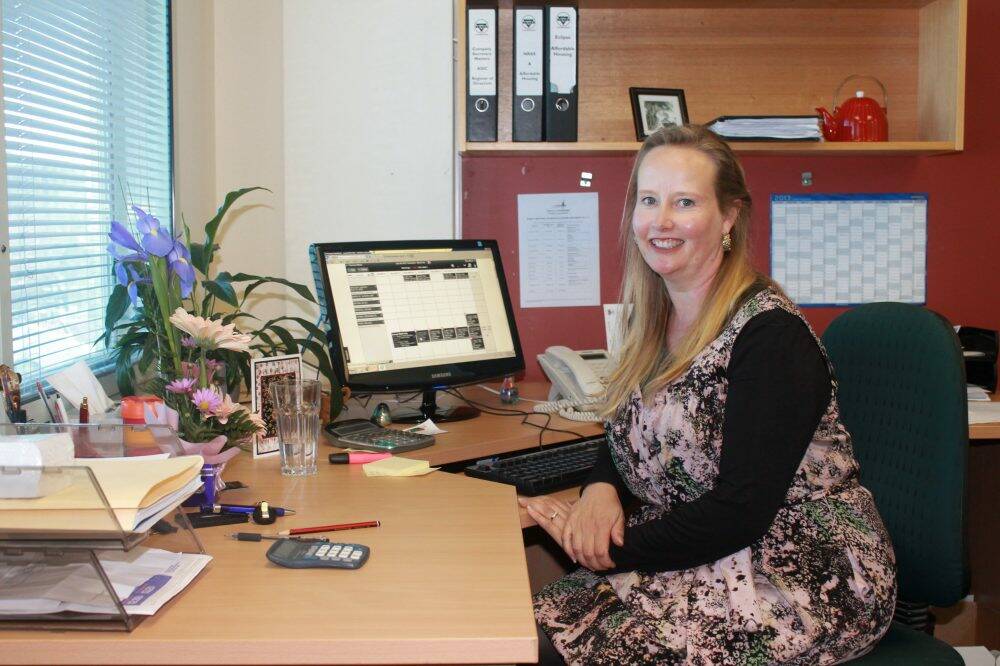There is a silence in our society when it comes to the continued gender biases that exist in our workplaces. The strides that we have made towards gender equality have been bold, but the fact remains that women are hugely under-represented in leadership positions in Australia.
Subscribe now for unlimited access.
or signup to continue reading
As at 2012, only 12 of the top 500 public companies in Australia had female CEOs, and our current government has only 17 per cent of its ministry positions held by women.

Perhaps most alarming is the continuing gender wage gap – women still earn 17.5 per cent less than our male counterparts for the same work, and female graduates can expect to earn $5,000 less per annum than male graduates.
These statistics are real. They demonstrate an attitude and an unconscious gender bias that form a significant barrier to women participating in the workforce.
At the YWCA of Canberra, we speak to many young women who haven’t experienced gender discrimination in the workplace. That is, until they take that pivotal first step towards a leadership position, whether it’s applying for a management role within an organisation, or for a board position.
They are hit again with the realities of gender inequality when they reach what is considered to be child-bearing age. It is at this point that the differences between the treatment of men and women become a real barrier – despite having the same level of education, the same professional experience, and the same level of skill as their male counterparts. Young women are suddenly faced with new challenges based entirely on their gender.
These barriers are twofold, in both perceived notions of women’s capabilities when it comes to leadership, and on the real systemic barriers to women engaging in demanding executive positions while balancing parenting responsibilities outside of work.
Workplaces in Australia are not responsive to the needs of women when it comes to balancing both motherhood and their careers. We know that 28 per cent of the discrimination claims investigated by the Fair Work Ombudsman in 2012-13 were pregnancy-related.
The YWCA of Australia conducted a pre and post-pregnancy survey with members in January this year, producing some alarming results. Women reported a decrease in their responsibilities at work following pregnancy, a lack of support to return to their positions post-pregnancy, and, in particular, an emphasis on the views of individual managers in determining working arrangements for pregnant women or recent mothers.
To make matters worse, a lack of affordable, quality childcare often prices women out of the workforce entirely. With women still more likely to be primary caregivers than men, this significantly impacts on women’s ability to fulfil their responsibilities as mothers as well as their career ambitions and goals.
More insidious than these systemic barriers, however, is the common perception that women lack the inherent skills and traits to hold leadership roles in our communities, governments and workplaces. The male-dominated image of what leadership is still prevails, and there is a dearth of women in leadership positions to hold up as an alternative.
In Australia, we don’t yet know what a sustained, gender-equal playing field looks like. For a brief period in our history, the sun shone on women leaders with both a female prime minister in Julia Gillard and a female governor-general in Dame Quentin Bryce.
We have since returned to the ‘status quo’, however. And despite some hand-wringing in the public domain about the current lack of women in leadership roles, there has been little effort to make real and lasting change.
The YWCA of Canberra is a supporter of quotas, as they have proven to be successful mechanisms to create a pipeline of young women into leadership roles. Until young women feel empowered to pursue leadership opportunities and have role models to look to, we will continue to be under-represented at the decision-making tables, be they in business, politics, education, or any other sector.
We need to celebrate and support our current women leaders, and encourage more women to take on executive and managerial roles. Unless this inequality is challenged, it will only become more entrenched and more difficult to break down.
That is why the YWCA of Canberra is hosting its inaugural She Leads Conference on Tuesday, building on our decades of work in developing leadership pathways for aspiring and established women.
The conference will provide a forum for women to develop their management and leadership skills, while also connecting them with women leaders in fields stretching from public policy and advocacy to the media, arts and community services.
The speaker line-up includes pioneering feminist Dr Anne Summers, deputy secretary (People Strategies and Policy) at the Department of Defence, Carmel McGregor, the director of the Workplace Gender Equality Agency, Helen Conway and many others.
These women have carved out their own pathways to leadership, and can now share their experiences and advice with others through the She Leads initiative.
As it currently stands, leadership in Australia is not equally accessible to men and women. The YWCA of Canberra recognises this through its leadership programs, which are focused on equipping women with the emotional resilience, skills and experience to excel as leaders, and to learn how to mitigate the impact of gender bias on their own leadership journeys.
Next Tuesday’s inaugural She Leads Conference is an important step towards addressing these issues, and ending the silence around gender barriers to leadership positions in Australia.
Frances Crimmins is the executive director of the YWCA Canberra.

